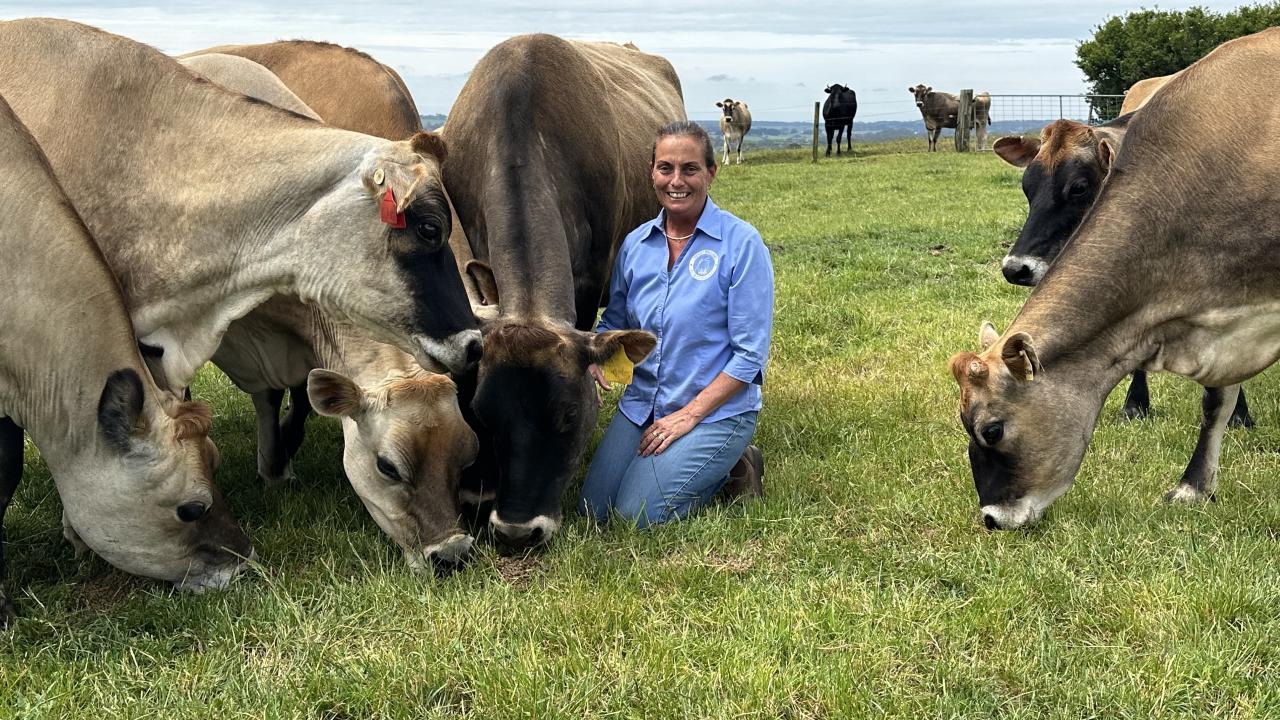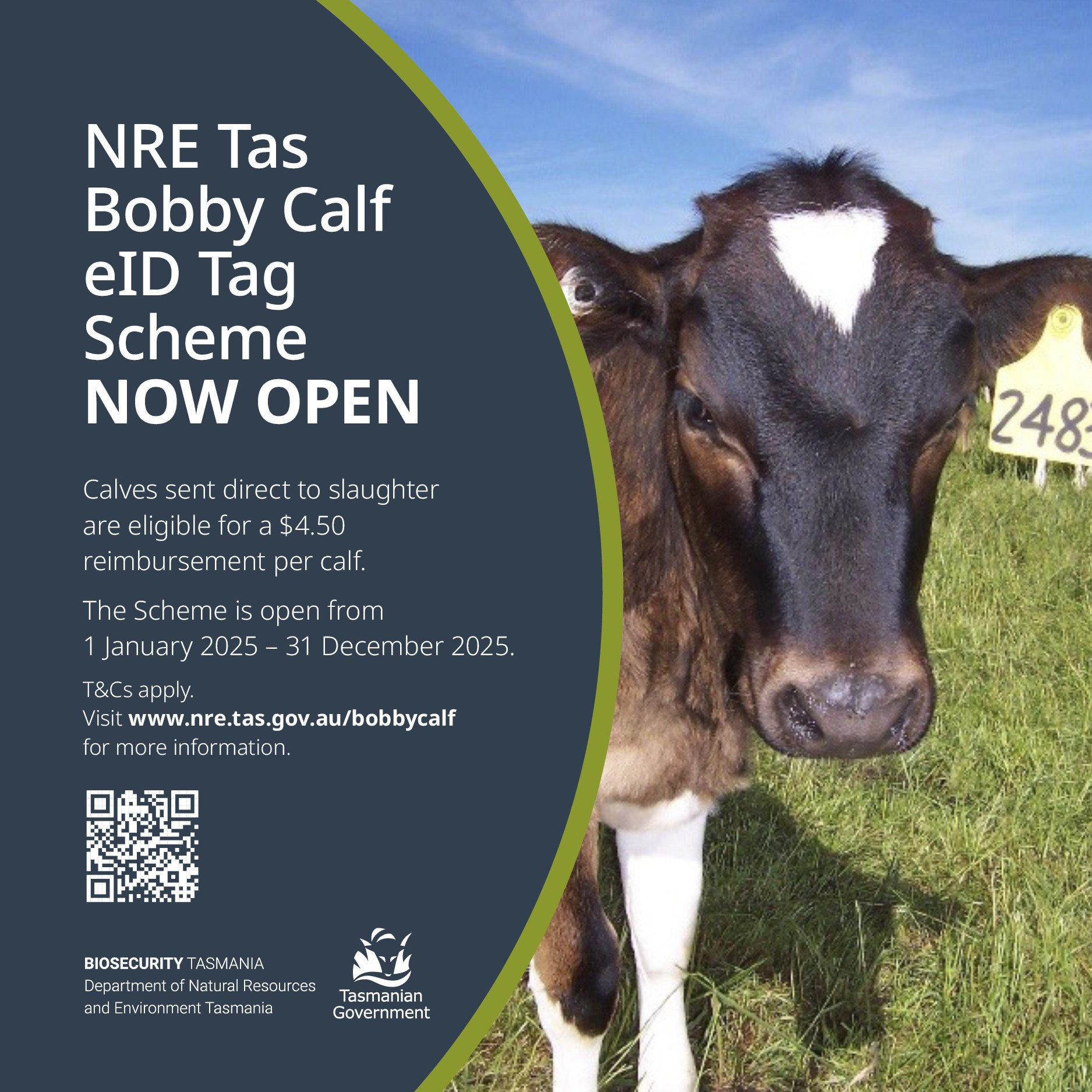Trailblazer series: Penny's a people person

FARM consultant Penny Williams is not one of shy away from a challenge.
It is her can-do attitude that has helped her achieve a successful career in the dairy industry spanning almost three decades.
Ms Williams grew up on a dairy farm at Tatura in northern Victoria where her family ran a Jersey stud.
After finishing her studies at university her career officially started in 1997 with what was supposed to be a two-year stint in Tasmania.
She was initially employed as the Department of Primary Industries discussion group facilitator.
“There were 12 monthly discussion groups in Circular Head and a Tasmanian business management dairy group which was statewide, so I ran all of them,” she said.
“We ended up with 80 per cent of the dairy farmers in Circular Head attending each month which was fantastic.”
Ms Williams went overseas 12 months looking at different dairying systems before returning to Tasmania where she worked for Serve-Ag as the company’s only dairy consultant.
Two years later she came up with the idea of establishing her own business.
At the time, Ms Williams and her husband were also just starting a family.
“The timing was right then so I could do three or four days and that worked well,” she said.
“I do remember though the first month I earned $300 so I thought, oh, I hope I’ve done the right thing.”
At the time, Ms Williams said there was only one other farm consultant in the state. Starting her career in dairying as a woman in her early 20s posed some challenges.
“I took over the role in the Department from someone called Peter Neaves who everyone knew and absolutely loved,” she said.
“So, I was a female about 22 at the time and straight out of uni and turning up to male-dominated discussion groups and there were quite a few Kiwis around at the time, so I did have some challenges.”
Ms Wiliams said growing up on a dairy farm gave her valuable insight.
“I just treat everyone the same and it has had its challenges, but growing up on a dairy farm I knew what issues were happening out there so that definitely helped,” she said. When she started her consultation business in 2002, she said Tasmania’s dairy industry looked very different.
“At that time the average herd size was only 200 or 220 cows and they were mainly family farms,” she said.
Her work in the early days focused on helping clients with things like cash flow budgets, cow nutrition and finance work.
Nowadays the average herd size in Tasmania is about 700 cows.
Just like the industry, Ms Williams said the work she does has also changed over the years.
“Most of the work I do now is dealing with people,” she said.
“Whether that’s from the pastoral award or helping people learn how to get the best out of their people. So, the industry has changed enormously. I was the worst people manager 10 years ago, but I have had to learn.”
As part of that learning process Ms Williams has also been studying psychology.
“I started that because I wanted to learn about what motivates people so that was an elective but now, I’ve got so interested in human behaviour I’m going to keep going and if I get accepted, I’m going to start honours in March,” she said.
Ms Williams said having a deeper understating of human behaviour helps when she is advising clients on how to manage people or work their way through the often difficult process of succession planning.
“It’s all around intrinsic and extrinsic motivation,” she said.
“So, if an employee doesn’t have an intrinsic motivation, or skin in the game, they’re not going to be motivated. That’s why I did it because one of the biggest issues we have in the dairy industry is the people factor. Milking the cows and growing the grass is easy.”
Ms Williams said the expansion of family farms into bigger operations and the issues they had with employing people, sometimes for the first time, was something she had seen starting about 10 years ago.
Being able to help farmers through these challenges is one of the most satisfying aspects of her job.
“One of the best things is the people and the friendships I have made,” Ms Williams said.
“A lot of my clients have actually become my friends and for the major ity of them I can just call in and have a cuppa. And just watching their families grow up as well.”
Ms Williams said sometimes emotions can run high when dealing with family businesses.
“Probably one of the hardest things is when there are situations when there’s a lot of emotion involved.
I need to have very good facilitation skills, especially with things like succession which is happening quite a bit in Tasmania at the moment,” she said.
“People often think it will be over in one of two months, but in a lot of cases it can take one or two years or longer,” she said.
Mr Williams has also seen the huge shift from mainly family farms to corporate ownership.
Despite the prevalence of corporate owned farms, Ms Wiliams said there were still opportunities of younger people to take on share-farming positions if they are prepared to work hard and find the right farm owner.
In recent years, Ms William has also ventured into farm tourism with an accommodation business on their property at Alcomie in the state’s North-West.
She said educating their guests, who often have no idea about agriculture and how food is produced, is some thing she also really enjoys and plans to do more of.




Add new comment